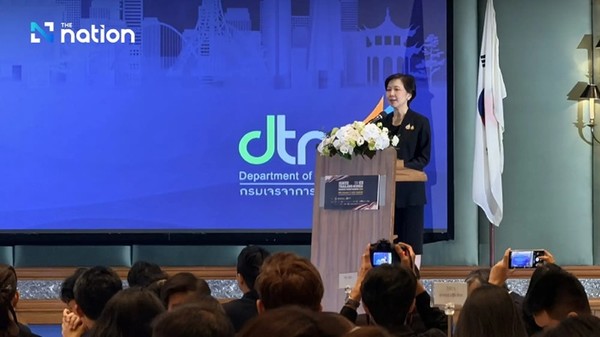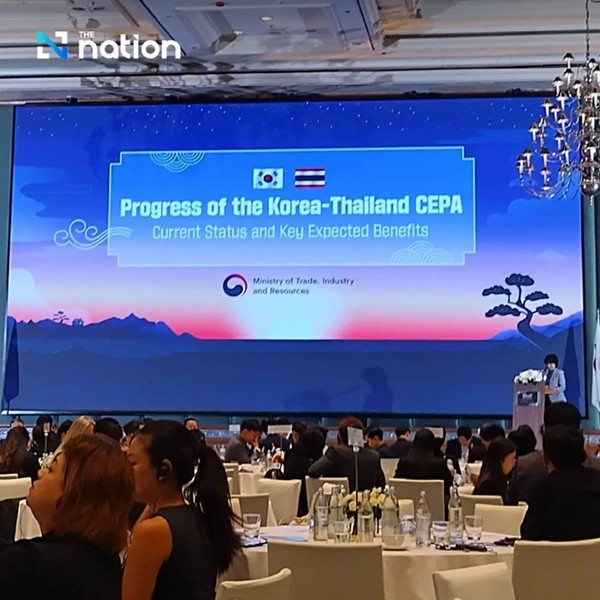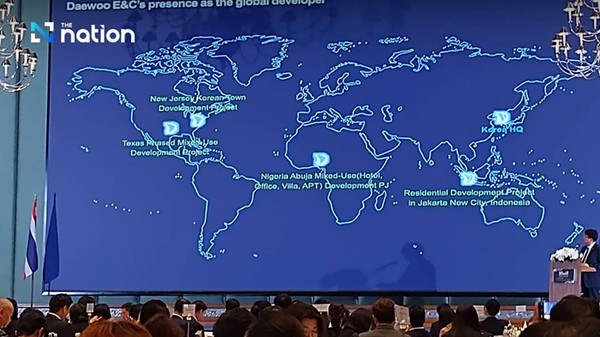-South Korea is pursuing a Comprehensive Economic Partnership Agreement (CEPA) with Thailand to liberalize markets, improve service access, and strengthen investment protections beyond existing trade deals.
-Thailand is viewed as a strategic gateway due to its position as ASEAN's third-largest economy and a key regional production hub for automobiles and electronics.
-As a major investment, South Korean construction firm Daewoo E&C plans to enter the Thai market as a "master developer" of smart cities that integrate Korean culture and lifestyle.
-The enhanced partnership aims to create industrial synergy by aligning Korea's manufacturing strengths with Thailand's "Thailand 4.0" policy and stabilizing regional supply chains.

Deputy Trade Minister outlines ambitious vision for comprehensive partnership as Daewoo E&C plans smart city developments across Thai market.
South Korean officials and corporate leaders have outlined an ambitious strategy to deepen economic ties with Thailand, viewing the kingdom as a critical gateway for expanded trade and investment in Southeast Asia.
Speaking at the IGNITE Thailand-Korea Business Forum in Bangkok on Monday, Kwon Hye-jin, Deputy Minister for Trade and Negotiations at South Korea's Trade Ministry, emphasized Thailand's pivotal role in the region's economic landscape.
Thailand represents the third-largest economy in ASEAN by GDP and serves as a crucial production hub for automobiles and electronics in Southeast Asia, currently hosting approximately 400 Korean companies.
Despite the existing economic relationship, Korean officials believe there is substantial room for expansion.
The centerpiece of this strategic push is the Korea-Thailand Comprehensive Economic Partnership Agreement (CEPA), which has completed seven rounds of negotiations since July 2024, covering 24 chapters in total.
Kwon stated that the objective is to conclude a "high-level comprehensive agreement worthy of the name Comprehensive Economic Partnership Agreement, covering digital trade, supply chains, and sustainable trade".
The agreement aims to go beyond existing multilateral frameworks such as the ASEAN-Korea Free Trade Agreement and the Regional Comprehensive Economic Partnership.

Korean officials are particularly focused on securing market liberalization for key export products, enhancing service market access, and establishing stronger investment protection mechanisms.
Thailand's Director General of Trade Negotiations, Chotima Iemsawadikul, affirmed that successful CEPA negotiations could lead to a $1 to $2 billion increase in GDP for both nations.
The trade relationship is characterized by complementary structures, with Korea primarily exporting intermediate goods such as steel, machinery parts, and chemical products, which Thailand then uses to manufacture finished products.
This alignment creates significant potential for expanded industrial cooperation, particularly in sectors aligned with Thailand's "Thailand 4.0" policy.
Beyond trade agreements, Korean companies are positioning Thailand as a key destination for large-scale development projects.
Daewoo E&C, South Korea's third-ranked construction firm, has unveiled plans to enter the Thai market as a "master developer" of smart cities that integrate Korean culture and lifestyle services.
Jung Wonju, chairman of Daewoo E&C and Herald Media Group, articulated a broader vision for the partnership, expressing hope that Thailand and South Korea "can find a new relationship and move forward to become nations related like the same economy, and the same brothers".

Han Seung, head of Daewoo E&C's Overseas Business Division, detailed the company's strategy, which centers on combining planning capabilities, investor fundraising abilities, and comprehensive construction management with what the firm calls the "K-factor"—integrating Korean content, lifestyle services, and attracting Korean investors to maximize synergy with Thailand's market potential.
The construction giant is also actively seeking opportunities in Thailand's infrastructure public-private partnership projects, signaling a long-term commitment to the market beyond residential and commercial development.
The enhanced cooperation is expected to leverage South Korea's strengths in manufacturing, particularly in automobiles, shipbuilding, semiconductors, and ICT infrastructure, whilst supporting regional supply chain stabilization and integration.

